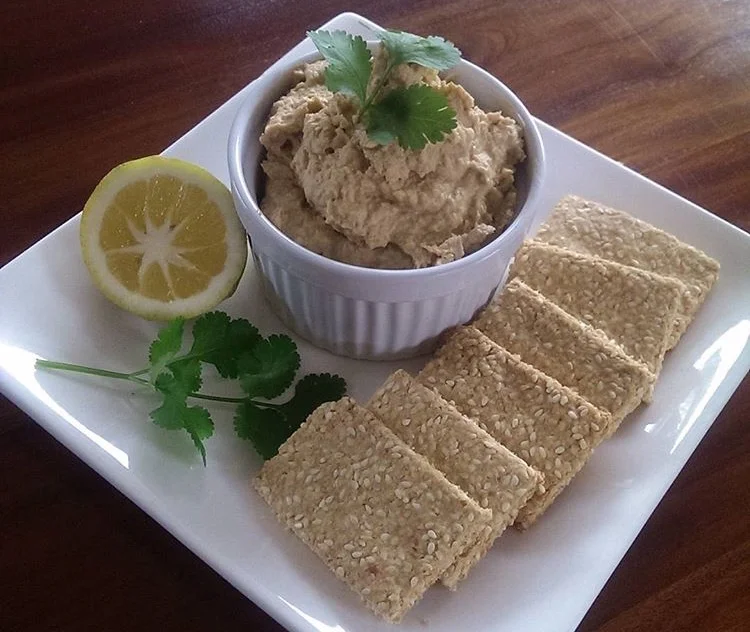Sleep - how's yours?
Poor sleep is one of the main issues that comes up when I talk with people about their health in my clinic. Healthy energy levels and cognitive function (memory, concentration, good decision-making, healthy mood etc) depend upon good quality sleep as a foundation. It's also when our bodies do most of the surveillance and tissue damage repair.
As we have a food-first approach to health, I have listed below a little information from one of my seminars, pertaining to what we ingest and how it may affect our sleep cycle. Nothing startling here, but good reminders. I find it's helpful to know the reasons why rather than just "don't do this" - health education and healthy habit creation is at the forefront of what we do here at Taste Success.
· Alcohol: Alcohol before sleep tends to suppress REM sleep early in the night. As the alcohol is metabolized later in the night, REM sleep rebounds, making awakenings more frequent.
· Caffeine has clear sleep-disrupting effects. Dependence develops at relatively low daily doses and after short periods of use. Large population studies have proven without doubt that even small doses of caffeine are associated with disturbed sleep and associated daytime sleepiness. If sleep does occur following the intake of caffeine, the stimulant’s effects may persist for some time and can influence the patterns of sleep. For instance, caffeine generally decreases the quantity of slow-wave sleep and REM sleep and tends to increase the number of awakenings. The duration of its effect depends on the amount of caffeine ingested, the amount of time before sleep that the person ingests the caffeine, the individual’s tolerance level, the degree of ongoing sleep debt, and the phase of the individual’s internal clock.
· Spicy food: an obvious one, but if you have sleep difficulties it’s an important one to keep off.
· Gluten: one of the major triggers for reflux and indigestion is the regular consumption of gluten. Our programmes don’t contain Gluten, so they are a great way to easily avoid this if you are currently relying on bread, pasta or flour-based products such as sweet treats. If you have Reflux, try going off foods containing gluten for a few weeks and see if your reflux improves.
· Fluid before bed: Another commonly known trigger for wakefulness. There are many reasons why you may be waking up to go to the toilet during the night (and I usually check for diabetes risk as one of them). Try not to consume fluids after 6pm if this is an issue for you. If it doesn’t resolve, we can discuss this.
· Carbohydrates: A study conducted in 2013 showed that diets higher in carbohydrates resulted in significantly shorter sleep times, and conversely higher protein diets resulted in less wakefulness.
· Restless leg syndrome: Iron and Magnesium deficiencies have been linked to restless leg syndrome in some cases – this is an easy thing to get tested for and fix. A diet rich in magnesium and iron-containing foods can make a powerful difference also.
What have hormones got to do with it?
With up to 80% of menopausal women seeking help at menopause for insomnia, hormones can play a major role with our sleep quality. Here are 4 key hormones that play a role with sleep:
Ghrelin: Ghrelin is a hormone produced by specialised cells that line the stomach and the pancreas. Ghrelin is one of the main hormones to stimulate hunger. Ghrelin levels increase before meals and decrease after meals.
Leptin: A hormone that counteracts the effects of ghrelin; leptin is produced by the fat tissue in the body. Leptin induces satiation or a feeling of fullness after a meal. When the leptin level is high, hunger is decreased. Studies show that people with shorter sleep cycles have elevated ghrelin (appetite-inducer) and lowered leptin (appetite suppressor). In Western societies, where chronic sleep restriction is common and food is widely available, changes in appetite regulatory hormones with sleep curtailment may contribute to obesity. Leptin can be tested via a simple blood test (cost = approx. $54)
Melatonin: Produced with trigger of darkness at two times - firstly, when the sun goes down and again at around 10-10.30pm. Increases sleep inception. Melatonin regulates your sleep-wake cycle, so if you don’t secrete enough of it you may find it difficult to get to sleep. Melatonin is only available on prescription here in NZ, but the precursor to it can be found in tart cherry, and the following foods: cabbage, feverfew (herb), walnuts. Nibbling some walnuts prior to bed is not a bad idea, as they also contain protein to stabilise blood sugars.
Cortisol: Levels of this hormone dip at bedtime, and increase gradually during the night to prepare for morning alertness. Cortisol imbalances are common these days due to high stress levels. The Oral Contraceptive pill (OCP) also affects cortisol production. It is very simple to have your cortisol tested, and it is something our in-house Naturopath, Tracey Loughran, does regularly with her patients. We can do a one-off cortisol blood test first thing in the morning, or a 24-hour assessment, to see what your cortisol levels are doing throughout your wake and sleep cycle. Contact us if you are interested in this.
What about nutrition?
If you’re hoping to get a better night’s sleep, try adding some of these sleep-enhancing foods to your diet:
Fish
Kale
Chickpeas
Nut butter
Oats – eating oatcakes later in the evening can help with sleep, as oats are good for relaxing the nervous system. You can top with some chickpea hummous.
All in all, sleep is complicated. You can positively affect your sleep quality through nutrition and healthy lifestyle habits. It's good to be aware of this when talking with clients as sleep can impact nutrition just like nutrition can impact sleep.


